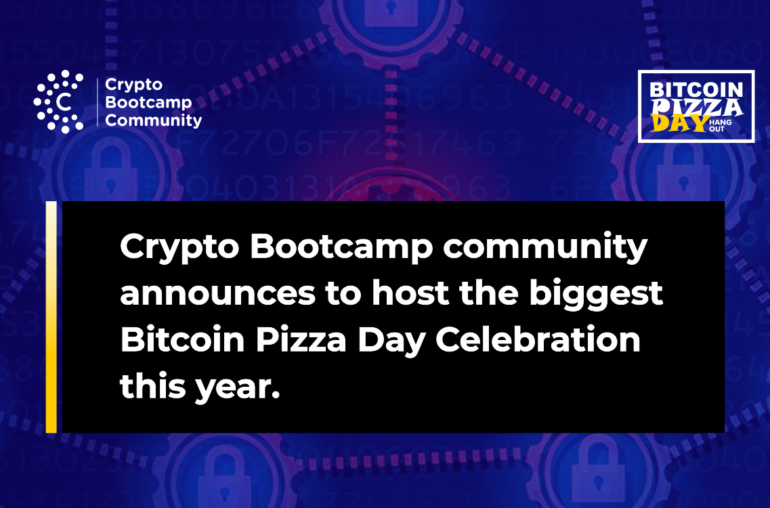Facebook, Instagram, and WhatsApp—three major social media sites owned by Facebook—all went down on Monday 4 October just as cryptocurrency or crypto asset prices surged. The three sites went down at 16:36pm (GMT), cutting communications for over 2.5 billion people globally for up to 8 hours.
In less than 2 hours, bitcoin (BTC) went up from $47,166 above $49,000, increasing by over 4.5%. Similarly, Ether (ETH) went up to $3,411, representing an increase of 3.5% within 2 hours as well. This price volatility is obviously sudden. It may have been spurred by the downtime suffered by Facebook, Instagram, and WhatsApp.
In the crypto space, particularly affected by the latest downtime are WhatsApp groups as well as Facebook groups by both crypto companies and independent crypto communities. Also affected are over-the-counter traders (OTCs) who use WhatsApp communication to facilitate OTC trading. The about 8-hour long downtime meant that while crypto communities couldn’t communicate with their members on the affected platforms, buy-sell orders couldn’t be completed as well by OTC traders except they found an alternative medium.
Facebook, Instagram, and WhatsApp apologize to users for the downtime.
At 16:22 (GMT) on 4 October, Facebook, through its Twitter handle, apologised for the downtime:
“We’re aware that some people are having trouble accessing our apps and products. We’re working to get things back to normal as quickly as possible, and we apologize for any inconvenience.”
By 22:33 (GMT), Facebook was still unable to restore the site. It further apologized to users and businesses:
“To the huge community of people and businesses around the world who depend on us: we’re sorry. We’ve been working hard to restore access to our apps and services and are happy to report they are coming back online now. Thank you for bearing with us.”
Similarly, at 16:25 (GMT), Instagram tweeted that:
“Instagram and friends are having a little bit of a hard time right now, and you may be having issues using them. Bear with us, we’re on it! #instagramdown”.
At 22:58 (GMT), Instagram updated the tweet, informing users that :
“Instagram is slowly but surely coming back now – thanks for dealing with us and sorry for the wait!”
Also, WhatsApp tweeted at 16:16 on 4 October that it was aware of the “issues” and assured users that things would get back to normal:
“We’re aware that some people are experiencing issues with WhatsApp at the moment. We’re working to get things back to normal and will send an update here as soon as possible.”
It was until 23:17 (GMT) of 5 October that WhatsApp sent an update about the slow and careful recovery of the site:
“Apologies to everyone who hasn’t been able to use WhatsApp today. We’re starting to slowly and carefully get WhatsApp working again.
Thank you so much for your patience. We will continue to keep you updated when we have more information to share.
Thanks for your patience!”
But users are beginning to run out of patience with Facebook-owned social media (simultaneous) downtimes as this isn't the first time.
This isn’t the first time Facebook, Instagram, and WhatsApp are experiencing a downtime at the same time. On March 2019, all three sites were down. This lasted more than 24 hours. And this does not include individual downtimes experienced by Facebook, Instagram, and Twitter over the years.
The latest downtime has triggered a general call for the decentralization of the social web using blockchain technology. Some others are calling for the “breakup” of Facebook, Instagram, and WhatsApp from its current sole ownership under Mark Zuckerberg.
Meanwhile, while crypto assets prices surged, Facebook stock fell by 5%, bringing its current value to $324.25 at the time of writing. Interestingly, the stock fell from $344.39 on 1 October to $323.68 on 4 October.
Telegram, Twitter, SMS to the rescue
Telegram—which is very popular in the crypto community—was up and available for use by the crypto community. So was Twitter as well as other sites not connected with Facebook.
Also, SMS usage is expected to have surged while the simultaneous downtimes on Facebook, Instagram, and WhatsApp lasted, especially on WhatsApp. WhatsApp has become the go-to app for messages as well as calls for many.
But from a cybersecurity angle, the risk of having to rely on SMS communication particularly for the purpose of completing a crypto transaction is relatively high. Mobile devices have become one of the major targets of hackers who typically phish the sensitive information of unsuspecting victims through various baits.
Will Facebook, Instagram, and WhatsApp move to a decentralized web powered by blockchain? Time will tell.
What could this scoop mean for the crypto asset buyer?
The up to 8-hour long simultaneous downtime of Facebook, WhatsApp, and Instagram is expected to spur more interest in decentralized social media. This is a blockchain-powered social media that some innovators are already working on, including Twitter CEO Jack Dorsey. Three things to expect: First, in the next few weeks, the weaknesses of centralization will be examined widely. And how decentralization, enabled by a distributed and trustless technology such as blockchain, will be contrasted with the present centralized web. Second, policymakers and lawmakers, especially in the US, may also start moving for the break-up of big tech. While this is not the first time concerns over the increasing control and influence of big techs such as Facebook, Google, and others would be coming up, it is expected to trigger a louder call for policy action. Third, in the crypto space, it is expected that more decentralized apps (Dapps) that wish to disrupt the likes of Facebook, Instagram, Twitter, WhatsApp and other currently centralized social networks will begin to pop up. Altogether, the effect of the three reactions above may impact the crypto market. Specifically, coins or tokens that are centred on decentralized web, decentralized social networks, or SocialFi [efn_note]SocialFi combines Social and Finance. Powered by blockchain which provides the distributed, decentralized, and peer-to-peer network upon which it is built, SocialFi does not only look to solving the problem of trust with centralized social networks such as Facebook, Twitter, and others but also empower the social network user through financial incentives that ensure that the users also benefit from their social activities in a more open, fair, and transparent community. SocialFi model is user-based and seeks to leverage on the power of network effects to power a decentralized economy with no central authority. SocialFi is a crypto-powered sharing economy. (CAB)[/efn_note] witness a surge generally. But in the expected surge for SocialFi, the SocialFi crypto market is currently ripe for hype. This may trigger pumps and dumps in that ecosystem. The crypto asset buyer should beware.
SocialFi
Discover more from Crypto Asset Buyer
Subscribe to get the latest posts sent to your email.





